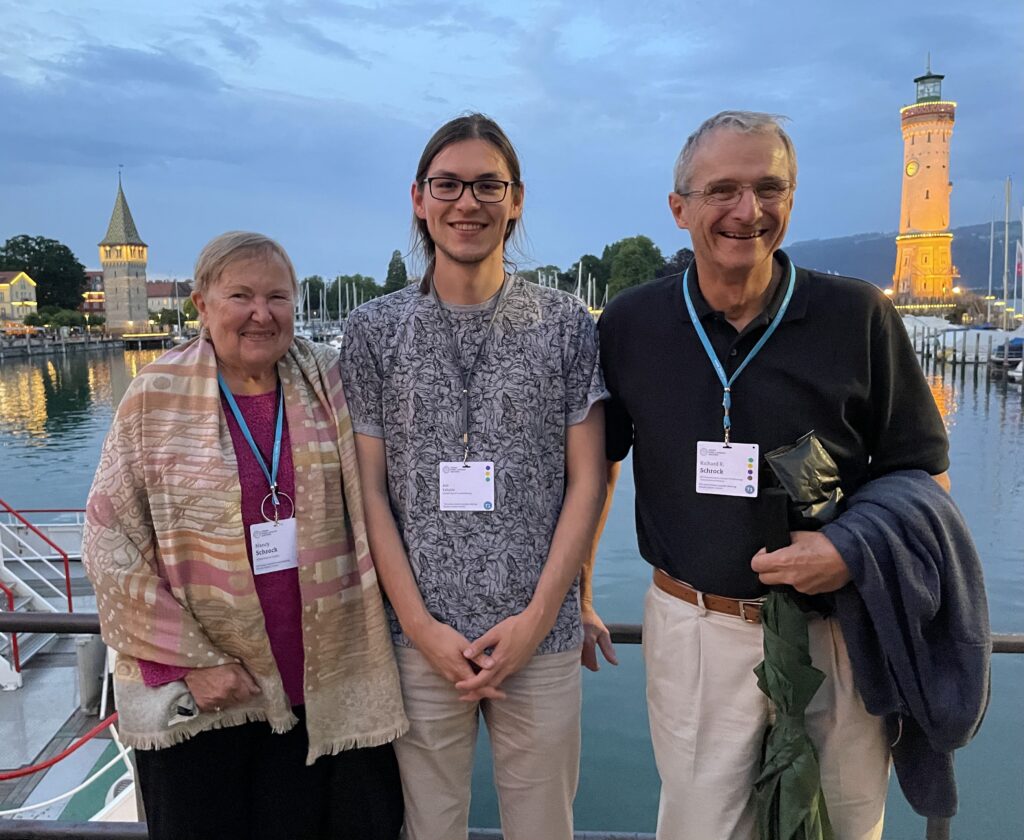BACK TO RESEARCH WITH IMPACT: FNR HIGHLIGHTS
BACK TO RESEARCH WITH IMPACT: FNR HIGHLIGHTS
For each Lindau Nobel Laureate Meeting, the FNR runs a Call for promising young researchers with a connection to Luxembourg to attend. For the 2022 Lindau Meeting, dedicated to chemistry, Adil Kabylda, PhD researcher in the group of Prof Alex Tkatchenko at the University of Luxembourg had this rare opportunity. We speak to Adil about the experience of meeting 30 Nobel laureates and inspiring young scientists.
You had the opportunity to meet Nobel Prize winners and hundreds of other young researchers, how was this experience?
“The overall experience was amazing! It was like a school summer camp, but with amazing young chemists and Nobel laureates. Laurates are evenly distributed around the world, and you get to meet 30 of them in one week.”

Did you have any opportunities to interact with the Nobel laureates?
“We had many opportunities to interact and get their vision of the past, present, and future during open exchange sessions, agora talks, walks around the island, and dinners. Besides, this meeting united all young researchers, as we were all also excited and open to exchanging our ideas. In a way, that was even more engaging as these are the connections that will stay for the rest of our lives.
“I would encourage any young researcher to apply for future Lindau meetings, it could be a life-changing experience!
“Here, I want to thank my PhD and MSc supervisors Alexandre Tkatchenko and Anastasia Bochenkova for their support and FNR for the nomination!”
What were your impressions of the Nobel Prize Winners?
“All Nobel laureates are extremely passionate about science. I found them to be wise, self-conscious, smart, articulate, confident, and even stubborn in some sense. They were willing to share both scientific and personal sides of their lives including Nobel stories, successes, and funny encounters. But on the other hand, they made sure we understood that they are just humans like all of us, with the same hardships, drawbacks, and even impostor feelings. I found both these sides very insightful.”
It sounds like an inspiring experience – what were your main highlights?

“I immensely enjoyed scientific talks by the laureates. It is different from usual conferences because they presented scientific advancements that they have made over many decades – Nobel prize-winning work and beyond. What additionally made these talks special is behind the scenes stories with their personal feelings and opinions.
“One of my personal highlights was a discussion during dinner with Prof. Ben Feringa, where I shortly presented my work from the MSc thesis about bioinspired molecular motors. To my surprise, Prof. Feringa said he is aware of it and that it is very good work. Hard to imagine a better compliment, so I was quite happy about it.”
Were there any current topics that came up from several Laureates or researchers in attendance?
“Due to nature of my work, I spent most of the time with fellow theoretical chemists. We discussed many interesting ideas related to the application of Artificial Intelligence/Machine Learning to chemistry. Also, in general the topic of AI and ML emerged many times, including one of the panel discussions: the trust in AI, what we should be aware of and how we should proceed going into the future.”
Did you find any inspiration at the meeting, for your work or outside?
“Toward the end of the meeting, I went for a swim in Lake Constance. Looking at the beautiful landscapes around, I felt grateful and could not believe that all this was happening. The main takeaways I’ve heard in various forms from Nobel Laureates are rather simple: dream big and follow your heart!”
Can you tell us a bit about your research, what do you study and why is it important?
“I have just finished the first year of my PhD in Prof. Alexandre Tkatchenko’s laboratory, supported by the FNR AFR programme. My PhD project is about the development of machine learning methods that accurately describe long-range interactions that are crucial for the modeling of large and flexible molecules. This will allow modeling and provide an atomistic-level understanding of increasingly complex molecular systems

More Lindau Interviews
